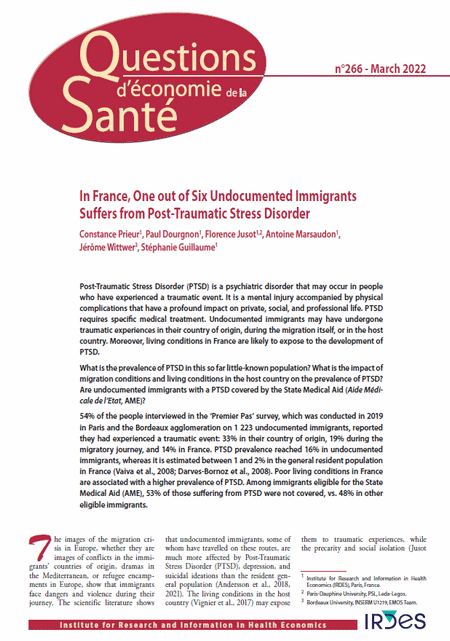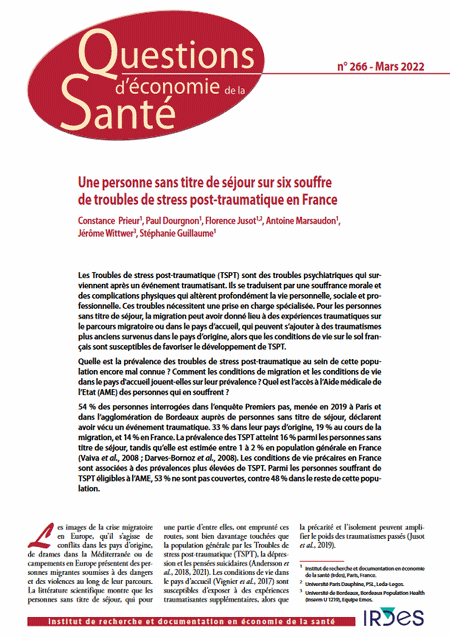In France, One out of Six Undocumented Immigrants Suffers from Post-Traumatic Stress Disorder
Prieur C. (IRDES), Dourgnon P. (IRDES), Jusot F. (Paris Dauphine University, PSL, LEDA-LEGOS, IRDES), Marsaudon A. (IRDES), Wittwer J. (University of Bordeaux, Bordeaux Population Health, EMOS-INSERM), Guillaume S. (IRDES)
Questions d'économie de la santé (Issues in Health Economics) n° 266
Pending scientific publication / En cours de valorisation scientifique
See also Questions d'économie de la santé n° 266 in French: Une personne sans titre de séjour sur six souffre de troubles de stress post-traumatique en France.

